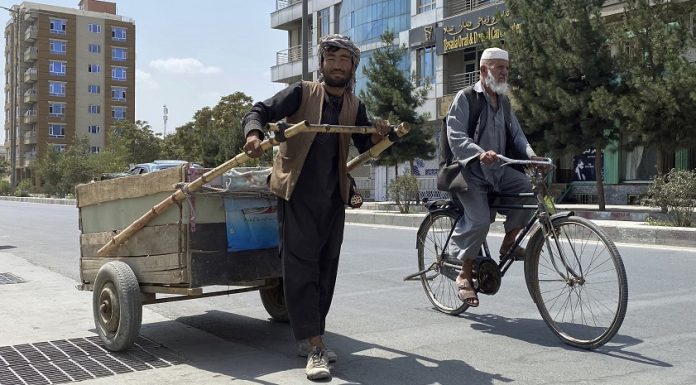(Headline USA) The United Nations’ stockpiles of food in Afghanistan could run out this month, a senior official warned Wednesday, threatening to add a hunger crisis to the challenges facing the country’s new Taliban rulers.
About one third of the country’s population of 38 million doesn’t know if they will have a meal every day, according to Ramiz Alakbarov, the U.N.’s humanitarian chief in Afghanistan.
The U.N.’s World Food Program has brought in food and distributed it to tens of thousands of people in recent weeks, but with winter approaching and a drought ongoing, at least $200 million is needed urgently to be able to continue to feed the most vulnerable Afghans, he said.
“By the end of September, the stocks which the World Food Program has in the country will be out,” Alakbarov told reporters at a virtual news conference. “We will not be able to provide those essential food items because we’ll be out of stocks.”
Earlier, U.N. officials said that of the $1.3 billion needed for overall aid efforts, only 39% has been received.
The Taliban, which seized control of the country ahead of the withdrawal of American forces this week, now must govern a nation that relies heavily on international aid and is in the midst of a worsening economic crisis.
In addition to the concerns about food supplies, civil servants haven’t been paid in months and the local currency is losing value. Most of Afghanistan’s foreign reserves are held abroad and currently frozen.
Khalid Payenda, Afghanistan’s former acting finance minister, on Wednesday detailed a country existing in a dangerously fragile state.
Speaking at Georgetown University in Washington, Payenda said the Afghan currency had yet to crash because money exchanges had been shuttered.
But its value could plunge by more than 100%, said Payenda, who described former Afghan President Ashraf Ghani as withdrawn and paranoid ahead of the Taliban takeover.
“I think the war had a toll on his psyche and he saw everything with suspicion,” Payenda said.
Part of the chaos reflects the speed at which the Taliban took control of the country, with Payenda saying he thought the prior government could have been sustained for two or three more years because of commitments by international donors.
“I did not expect it to be this quickly,” Payenda said. “Nobody actually did.”
Mohammad Sharif, a shopkeeper in the capital of Kabul, said shops and markets there have supplies, but a major concern is rising food prices.
“If the situation continues like this and there is no government to control the prices, that will cause so many problems for local people,” he said.
Adapted from reporting by the Associated Press.

